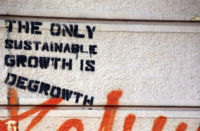The anti-communists tell us that communism cannot work because of human nature or that Marx failed to consider human nature. This has been met with some of those on the left claiming that humans are too complex or simply don’t have an inherent nature.
Dr John Edward Terrell, a professor of Anthropology at the University of Illinois Chicago, wrote on human nature, claiming that humans have one. While some may use human nature to say we are naturally greedy, some of what Dr Terrell puts forward explains why we have built communities throughout human history. In an article entitled “Yes, There is Something Called Human Nature” Dr. Terrell gives five traits of human nature.
The first is obligate social nurturance, which means an innate willingness to care for our young. While this isn’t necessarily unique, as other animals care for their young, the willingness of humans to raise and protect them ensures generations to continue. The second is obligate social learning, or our willingness to learn from other humans: not just those within our communities or whom we interact with on a personal level, but those throughout history also. We learn from others’ experiences and improve on them.
The third is our social networks. As humans, we work best when we work together and historically humans have banded together and formed civilisations which has caused us to grow. The fourth is our fantasy and imagination which are thought to be unique to humans. Our creativity and ability to imagine how something can come together have allowed us to use tools to further advance our productivity and understanding of the world. The last is our social collaboration or our talent for combining individual fantasies with social participation to make a real-world difference and get things done. A sixth trait could be put forth as Carl Linnaeus in the 18th century wrote a book called Systema Naturae. In this book, he named humans Homo Sapiens, sapien coming from Latin meaning wise. Before using sapien, Linnaeus had a side note next to homo which said nosce te ipsum, know thyself. This sixth trait would be self-consciousness: that we know we are humans, however this may not be unique to humans. These traits can be seen in humans throughout history and in separate civilisations.
Those anti-communists would add that a lust for violence, greed and want for power are also a part of our nature. A lust for violence has often had to be artificially implanted into people through propaganda in the interests of the ruling class. Sometimes this doesn’t work however and conscription is introduced to enforce by law the worker of one country killing the worker of another. When violence is used by those not of the ruling class it is more often to fight against the oppression of one nation upon another or against a system imposed by one class upon another. The people of national liberation movements – in Ireland who fought the British, in Vietnam who fought the French or today in Palestine who fight the Zionist state of israel – are not bloodthirsty. These movements arise from a condition of constant oppression and a desire for freedom.
The greed we see in the ruling class has not been a driving force of progress but rather a hindrance. The trait of cooperation put forth by Dr Terrell that we can see throughout history runs counter to this. The same can be said with power: many leaders of progressive movements did not hunger for power for power’s sake. The social and economic changes in Cuba, the Soviet Union and other socialist countries have shown us that humans create better societies when working in cooperation for mutual benefit rather than individual gain.
We can see that humans have a nature, which can change based on the economic and social conditions that a human is under. When looking at modern struggles and historical developments this should be taken into account to understand our history as a species.






